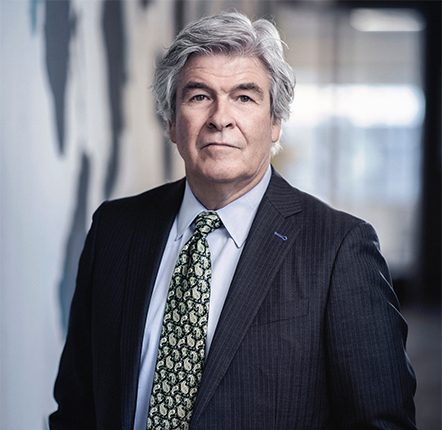Seeking Medical Help After Sexual Assault

Where can I get medical help after sexual assault in Los Angeles?
There are a variety of different places that you can receive medical help after experiencing sexual assault in Los Angeles. Here is a list of the places we recommend visiting promptly:
- UCLA Rape Treatment Center
- YWCA Greater Los Angeles
- East Los Angeles Women’s Center
- The Center for Assault Treatment Services
If any of these places are inaccessible to you, you can visit your local hospital emergency room, clinic, urgent care, or police station to get the help that you need. You can also call or chat with a representative from the Rape, Assault & Incest National Network (RAINN) confidential hotline, which is available 24/7.
What is sexual assault?
California currently does not have one single definition for sexual assault. Therefore, it is a broad term that typically means that someone sexually touched you in some form or way without your consent. In addition, it is important to know that if you are under the age of 18, you are considered a minor, which means that you cannot legally consent to any sexual activity, according to California Code 261.5. A few examples of sexual assault include:
- Rape or attempted rape
- Sexual battery
- Seduction
- Inappropriate touching
- Sexual harassment
- Sexual intimidation
Remember that if any of these things happened to you, it is not your fault. Some people will try to blame themselves or think of reasons that they may have caused the perpetrator to think that they wanted the unwelcome sexual activity. However, the truth is that you were pressured, forced, and manipulated, and that person should be held accountable for their criminal behavior.
Why should I seek medical help after sexual assault?
You may be overwhelmed with many thoughts after experiencing a sexual assault, which is completely normal. However, it is critical that you seek medical help at your earliest convenience. This will give the doctors, nurses, and other healthcare providers the chance to look at your injuries as well as treat them appropriately. While it can be very uncomfortable and overwhelming to sit through an exam, there may be additional injuries and physical harm that the doctor will know how to look for that you may have missed. In addition, they will be checking you for sexually transmitted infections (STIs), pregnancy, diseases, and more.
What does a medical visit after sexual assault typically consist of?
When visiting a medical facility to get medical attention after a sexual assault, your visit may consist of the following:
- A physical exam
- Prescriptions or medications to prevent you from becoming pregnant
- Prescriptions or medications to reduce the chances of having an STI
- Tests for STIs
- A sexual assault forensic exam, or “rape kit”
You have the right to leave the medical facility or choose to not participate in any part of the sexual assault medical process at any time. If you do not want a physical exam or to submit a rape kit, you have the right to tell the doctor no. If you change your mind, you can go back to the medical facility whenever you are ready.
How long do I have to submit a rape kit?
Unfortunately, a rape kit has a time limit. You have 72 hours from the time that the sexual assault happened to undergo the exam. However, if you can get this done sooner, the better your chances will be at preserving the evidence. This kit consists of:
- Cotton swabs
- A comb
- Documentation forms
- Paper and bags for collection of specimen
- A cup and other items for blood and urine samples
Are STIs and pregnancy something I should worry about?
STIs and pregnancy are absolutely something you should think about after being sexually assaulted. The reason for this is because you are at risk for both if you have experienced sexual assault. You should get tested right away for STIs. A doctor or healthcare professional will know which tests you should take depending on what happened during the sexual assault.
Some people have a chance of becoming pregnant after a sexual assault. While it can take a few weeks before you can know this information, a doctor can prescribe or give you certain medications to prevent you from becoming pregnant. If you are worried about being pregnant or are already pregnant, you should discuss this information with a doctor as quickly as possible.
Do I need to do anything before visiting a medical facility for a sexual assault?
You do not need to do anything before visiting a medical facility for a sexual assault. It is critical, however, that you are aware that this is different from a normal check-up or doctor’s visit. Therefore, freshening up is not recommended. As a matter of fact, you should not take a shower, clean yourself up, change clothes, or wipe or brush your clothes or body off. Everything on you can be used as evidence, so the last thing you want to do is get rid of any key evidence.
Taylor & Ring has an outstanding proven track record for standing up and fighting for sexual assault survivors in Los Angeles, CA. Our sexual assault lawyers are compassionate and aggressive, ensuring that we have what it takes to protect your rights and demand justice and compensation for the terrible acts you have endured. If you need a sexual assault attorney who will remain by your side and keep your case confidential, please call our office or submit our contact form today. We look forward to hearing from you soon!
Related Articles

John C. Taylor is one of the most accomplished and nationally recognized trial lawyers in California. The broad variety of cases he has tried during his career is matched by few attorneys, trying more than 125 cases to verdict, including: police shootings and civil rights, sexual abuse, serious personal injury, wrongful death, products liability, insurance bad faith, and employment.
Read more about John C. Taylor.

